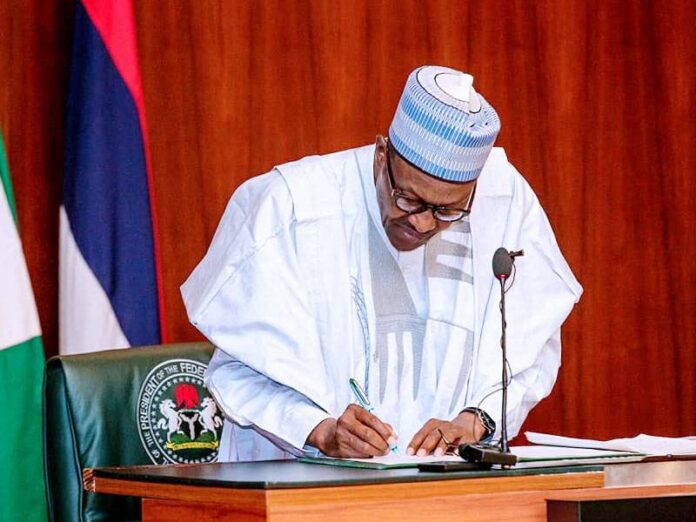SPACES FOR CHANGE | S4C welcomes the news regarding the final passage of the Petroleum Industry Bill (PIB) and its signing into law by President Buhari on Monday, 16th August, 2021. The new Petroleum Industry Act (PIA), 2021 provides a structured legal, governance, regulatory, and fiscal framework for the Nigerian petroleum industry, and the development of host communities. Despite its laudable provisions, the PIB (now PIA) was signed into law without resolving the controversies and criticisms that has plagued it over the years, especially as it affects oil producing communities and the huge allocation to frontier inland basins.
The Senate had passed the Bill on July 15, 2021, while the House of Representatives did same on July 16, thus, ending a long wait for regulation of the sector since early 2000. By assenting, the Presidency aligned with the positions of the National Assembly, which proposes a 30 per cent revenue allocation for the development of frontier inland basins, and 3 per cent allocation to host communities. Although the new legislation provides the needed clarity on laws regulating the operations of the oil and gas sector, several critical sections of the Act negate the achievement of its ultimate objectives. These include:
· Clause 104(1): The permitting of continuous flaring of gas (even though there is penalty for flaring gas) leads to continuous devastation of the local environment and deterioration of the health of the locales.
· Clause 109(4): Granting of domestic crude oil supply obligation licence to only holders of crude oil refining licences, whose refineries are in operation. This will eventually lead to legitimization of market monopoly.
· Clause 235: Granting of enormous powers to settlors to set up and appoint members of the board of trustees, management committee, authorise board of trustees meeting and administrative procedures, and to conduct needs assessment. This provision solidifies the power asymmetry between the operators and the host communities.
· Clause 240(2): Allocation of a paltry sum of 3% of settlor’s actual annual operating expenditure of the preceding financial year for Host Community Development Fund.
· Clause 9(4)(5): Allocation of 30% of NNPC Limited’s profit for Frontier Oil Exploration Fund for the exploration of oil and development of frontier acreages in the Chad Basin.
By implication, the Petroleum Industry Act not only demonstrates a surprising bias for so-called frontier basins, despite paucity of evidence pointing towards the viability and commercial profitability of these ventures, it also did not learn from history to address past mistakes neither does it adequately address the concerns of oil producing communities in Nigeria, whose resources have sustained the nation for the past six decades.
With these many pitfalls in the Act, it is hoped that the National Assembly will take a second look and move for an amendment of the problematic provisions. However, it is noteworthy that despite its major shortcomings, the Petroleum Industry Act ushers in new opportunities for engagement among stakeholders, especially host communities. We believe that a well implemented PIA will facilitate structural and fiscal reforms, and in the process, unlock billions of dollars of delayed investments and revenues in the oil and gas industry in Nigeria.
SPACES FOR CHANGE | S4C, therefore urges the National Assembly to consider an amendment of the troubling sections of the Act to reflect the true aspirations of the Nigerian people, especially host communities, even as we charge all stakeholders to work together to realise the inherent policy and socioeconomic goals set by the PIA for the overall benefit of all Nigerians.
Signed:
SPACES FOR CHANGE | S4C
Victoria Ibezim-Ohaeri
Executive Director














